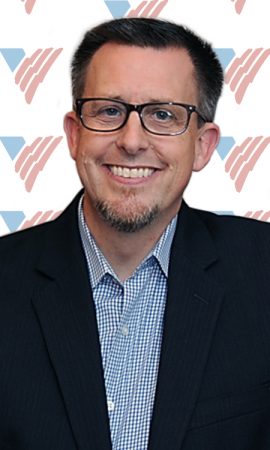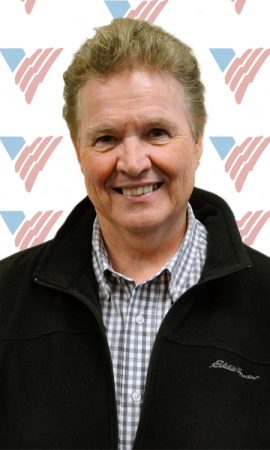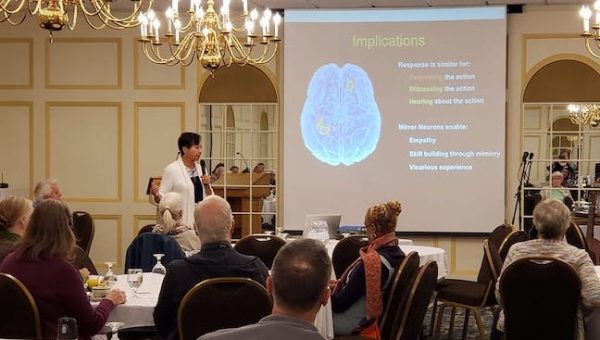Most people are familiar with the term post-traumatic stress disorder or PTSD. According to the American Psychiatric Association PTSD is a “psychiatric disorder that can occur in people who have experienced or witnessed a traumatic event such as a natural disaster, a serious accident, a terrorist act, war/combat, rape or other violent personal assault.”
Someone with PTSD may have flashbacks or nightmares about the traumatic event. They may also startle easily, feel anxious a lot, lose interest in many things or have trouble concentrating.
People who experience trauma may also suffer a deep emotional and spiritual pain that is distinct from PTSD. They may have performed or witnessed an act that cuts to the core of their own deeply held moral beliefs. Like going to war and killing someone. The act is so against how they were raised, what they believe in, and how they distinguish right from wrong that they feel broken. It’s like a wound to the conscience and it has a name. Moral injury.
A person doesn’t need to go to war to experience moral injury. It can be triggered by any kind of traumatic event explains Rich Hooks Wayman. He’s President and CEO of Volunteers of America, Northern New England.
We’re looking at something that happened in someone’s life, an experience changed them and they feel that they no longer deserve to be alive. They’re living in deep, deep shame that is unmanageable or that they can’t seem to move through. They may not be able to hold jobs, they may not be able to function as a parent, they may not be able to live without substances to help cover up their pain.
Rich Hooks Wayman, President/CEO, Volunteers of America, Northern New England
Volunteers of America is a national nonprofit faith-based organization that has been providing social services, affordable housing and residential treatment to people in need since 1896. Volunteers of America Northern New England or VOANNE serves people in Maine, New Hampshire, and Vermont and recently hosted a two-day seminar in Maine on moral injury. It is their second. Last year the focus was on the veterans’ community and this year on people who struggle with addiction.
Reverend Al Boyce, who is a chaplain with VOANNE, says whatever the traumatic experience or cause of a moral injury, it is possible for people to heal and find their way back to their moral self again.
It’s not just a psychological process, it’s a spiritual process as well. All strata of society can experience moral injury or an event that kind of stops them in their emotional and spiritual tracks and they can’t function as they might wish. There’s a way to heal the deep suffering that goes with a moral injury. We want to get that word out.
Reverend Al Boyce, PhD., Chaplain, Volunteers of America, Northern New England
The first step in healing from a moral injury is to recognize and understand it, says Dr. Rita Brock, who led this year’s conference. She is a theologian and leading authority and researcher on treating moral injury. She is also founding director of the Shay Moral Injury Center at Volunteers of America and co-author of Soul Repair: Recovering from Moral Injury After War.
Some people think that moral injury is the same as PTSD. While they can share some symptoms, they’re very different conditions and treating moral injury the same as PTSD can actually worsen the condition.
Rita Brock, Ph.D.
This knowledge began to emerge at Walter Reed Medical Center in Washington, DC during the treatment of U.S. veterans who had recently returned from war. Even after multiple treatments for a variety of physical and mental health issues, including PTSD, they were seeing high suicide rates.
When the Veterans Administration looked into why that was happening they realized that some veterans came back with a sense that they had violated their core values and had lost their sense of identity and goodness. They felt evil or flawed and that spun out into areas of addiction, emotional harm, self-abuse, and domestic violence.
The VA began to recognize that if they were going address the situation, they had to go back and work on emotional and psychological healing. They also had to have a conversation about spirituality and morals and values and how we define ourselves. Only then can people start to heal or understand their role in those dramatic areas. We at VOANNE are interested in this because we serve U.S. veterans and many homeless programs here in the state of Maine. And we’re very committed to continuing our work.
Rich Hooks Wayman
What VOANNE and Volunteers of America are doing right now is starting a dialogue about moral injury. Their ultimate goal is to be an important resource — for individuals who are suffering and for the people who are trying to help and care for them.
You can go to the national website and download all kinds of information about moral injury — books, articles, and helpful resources. You can also visit the VOANNE website to see some of the work they’re doing in Northern New England. You’ll also find contact information on both sites if you have further questions.




Why we need to end the endless wars. An ounce of prevention…